-
What are the main requirements for immigrating to Canada?
Canada has various immigration programs with different requirements. Generally, you'll need to meet criteria related to age, education, work experience, language proficiency (English or French), and adaptability. You must also demonstrate that you have enough funds to support yourself and your family after arriving in Canada.
-
How long does it take to process a Canadian immigration application?
Processing times vary depending on the program, the complexity of your case, and the volume of applications being processed. Express Entry applications typically take six to eight months, while other programs, like Provincial Nominee Programs (PNPs), may take longer.
-
How much does it cost to immigrate to Canada?
The costs vary depending on the program and your specific circumstances. Fees include application fees, processing fees, language test fees, medical examination fees, biometrics fees, and potentially others. We can provide a detailed cost estimate after your eligibility assessment
-
What is the difference between temporary and permanent residence?
Temporary residence allows you to live and work in Canada for a specific period, usually with conditions attached (e.g., a work permit tied to a specific employer). Permanent residence grants you the right to live and work in Canada indefinitely with more rights and benefits, including access to healthcare and social services.
-
Do I need a job offer to immigrate to Canada?
While a job offer can strengthen your application for some programs, it's not always required. Programs like Express Entry allow you to apply without a job offer if you meet other eligibility criteria.
-
Can I bring my family with me to Canada?
Yes, most immigration programs allow you to include your spouse or common-law partner and dependent children in your application. You can also sponsor other family members, such as parents and grandparents, under certain conditions.
-
What are the language requirements for Canadian immigration?
You need to prove your proficiency in English or French by taking an approved language test (TOEFL, IELTS, CELPIP, TEF) and achieving the minimum required scores for your chosen program
-
What if my application is refused?
If your application is refused, you may be able to appeal the decision or reapply if you can address the reasons for the refusal. We can advise you on the best course of action in such situations.
Express Entry FAQs
-
What is the Comprehensive Ranking System (CRS)?
The CRS is a points-based system used to assess and rank candidates in the Express Entry pool. You earn points based on factors like age, education, work experience, language skills, and adaptability. The higher your CRS score, the better your chances of receiving an Invitation to Apply (ITA) for permanent residence.
-
How often are Express Entry draws held?
IRCC typically conducts Express Entry draws about every two weeks, inviting the highest-ranking candidates to apply for permanent residence.
-
Provincial Nominee Program (PNP) linked to Express Entry?
Some PNPs are aligned with Express Entry. If you receive a provincial nomination through one of these programs, you can get additional CRS points significantly increasing your chances of receiving an ITA.
-
Can I improve my CRS score after submitting my profile?
Yes, you can update your profile with new information that could improve your score, such as retaking a language test, gaining more work experience, or obtaining a provincial nomination.
Provincial Nominee Program (PNP) FAQs
-
How do I know which PNP is right for me?
Each PNP has its own streams and requirements, often targeting specific occupations or skills shortages. We can help you assess your eligibility and choose the most suitable PNP based on your profile and goals.
-
Do I need a job offer to apply for a PNP?
Some PNPs require a job offer, while others don't. The specific requirements vary depending on the province and the stream.
Study Permit FAQs
-
What documents do I need to apply for a study permit?
You'll need a letter of acceptance from a designated learning institution (DLI), proof of financial support, a valid passport, and other supporting documents. Zera Immigration Solutions can provide support in identification of Designated Learning institutions and the documentation process.
-
Can I work while studying in Canada?
Yes, most study permit holders are allowed to work part-time (up to 20 hours per week) during their studies and full-time during scheduled breaks.
-
Can I apply for permanent residence after graduating?
Yes, there are programs like the Post-Graduation Work Permit Program (PGWPP) that allow you to gain Canadian work experience after graduation, which can then lead to permanent residency through programs like Express Entry or a PNP.

